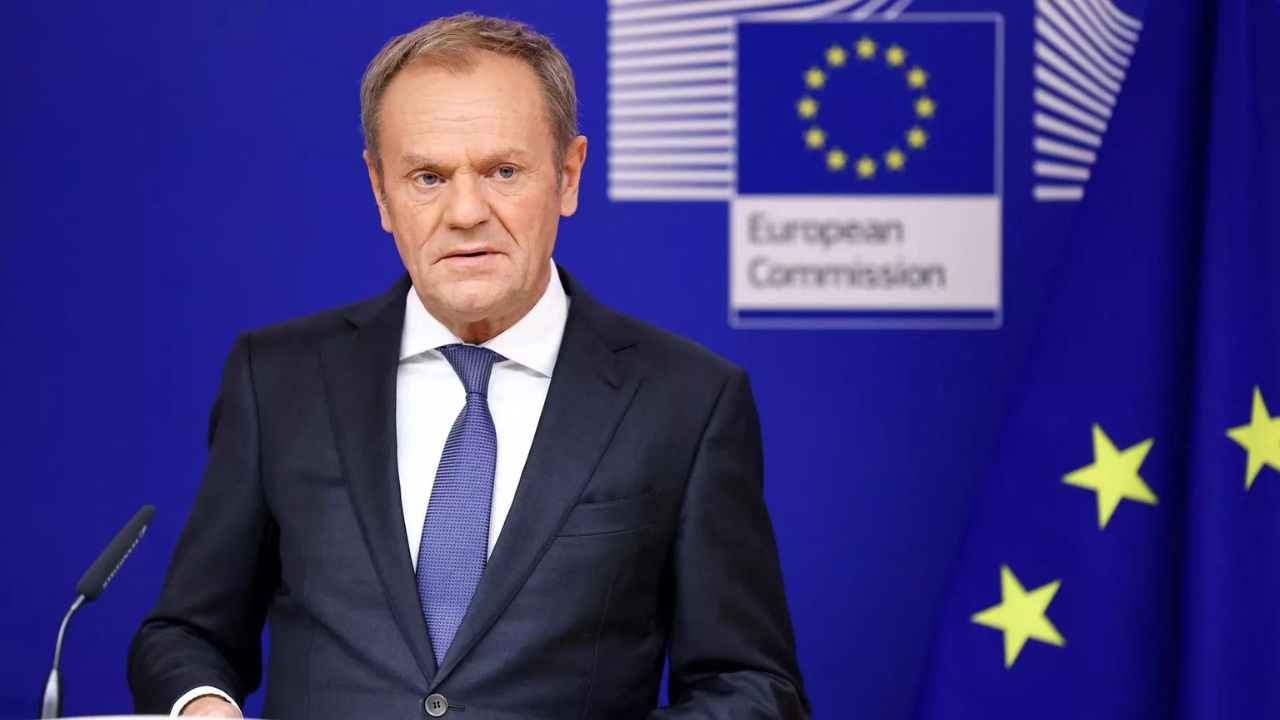WARSAW: Poland must use all methods possible to access frozen European Union funds, opposition leader Donald Tusk said on Wednesday during a trip to Brussels, as he seeks to resolve rows between Warsaw and the EU that have led to the cash being withheld.
Tusk, who is likely to become Poland’s next prime minister after a group of pro-European Union parties secured a majority in an Oct. 15 election, is aiming to gain access to billions of euros the EU put on hold due to concerns about judicial independence under the previous nationalist government.
“I am here as the leader of the opposition, not as the prime minister, but time is passing,” he told a televised news conference. “I had to take this initiative before final decisions were made, because all methods, including non-standard ones, had to be used to save the money that Poland deserves.”
At stake is Poland’s access to 35.4 billion euros ($37.41 billion) in grants and loans from the EU’s recovery fund.
EU concerns over the Polish judicial reforms are also blocking Warsaw’s access to 76.5 billion euros of ‘cohesion funds’, which are meant to raise the standard of living in poorer regions of Europe.
Poles are waiting to see whom President Andrzej Duda will task with forming a government.
Duda, an ally of the outgoing Law and Justice (PiS) government, has previously said he would give the first shot at assembling a new coalition to the largest single party in the parliament.
PiS came first in the election but is unlikely to find a partner with enough seats to form a coalition government.
The leaders of the three groupings intent on forming the next government – Tusk’s liberal Civic Coalition (KO), the centre-right Third Way and the New Left – have all ruled out working with PiS and have urged Duda not to delay in giving Tusk the job of forming a government.
($1 = 0.9463 euros)
Tusk, who is likely to become Poland’s next prime minister after a group of pro-European Union parties secured a majority in an Oct. 15 election, is aiming to gain access to billions of euros the EU put on hold due to concerns about judicial independence under the previous nationalist government.
“I am here as the leader of the opposition, not as the prime minister, but time is passing,” he told a televised news conference. “I had to take this initiative before final decisions were made, because all methods, including non-standard ones, had to be used to save the money that Poland deserves.”
At stake is Poland’s access to 35.4 billion euros ($37.41 billion) in grants and loans from the EU’s recovery fund.
EU concerns over the Polish judicial reforms are also blocking Warsaw’s access to 76.5 billion euros of ‘cohesion funds’, which are meant to raise the standard of living in poorer regions of Europe.
Poles are waiting to see whom President Andrzej Duda will task with forming a government.
Duda, an ally of the outgoing Law and Justice (PiS) government, has previously said he would give the first shot at assembling a new coalition to the largest single party in the parliament.
PiS came first in the election but is unlikely to find a partner with enough seats to form a coalition government.
The leaders of the three groupings intent on forming the next government – Tusk’s liberal Civic Coalition (KO), the centre-right Third Way and the New Left – have all ruled out working with PiS and have urged Duda not to delay in giving Tusk the job of forming a government.
($1 = 0.9463 euros)

